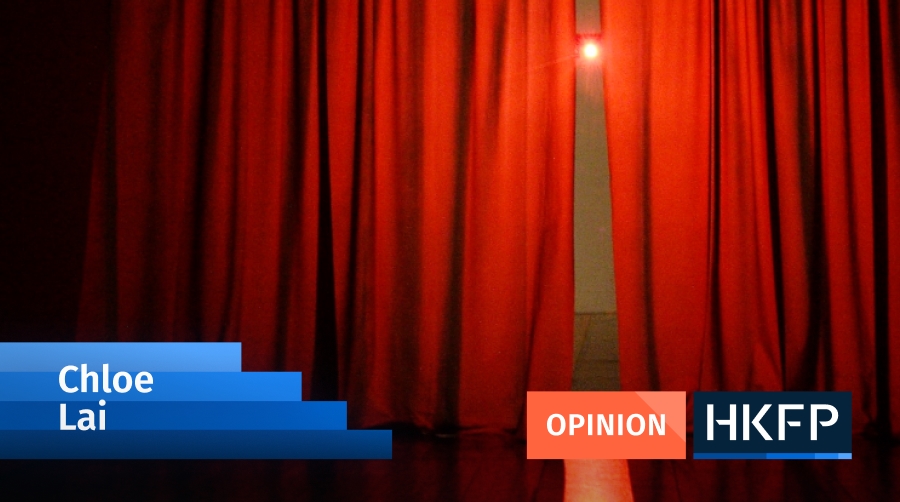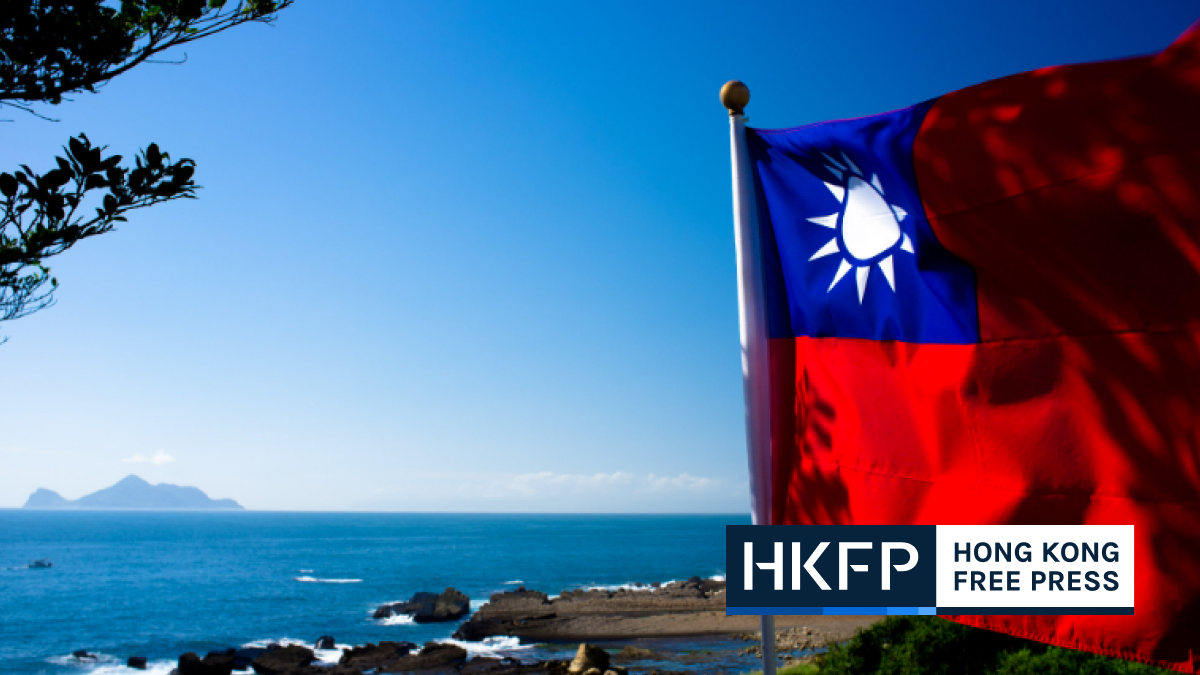A new law that allows the enforcement of mainland Chinese court rulings in Hong Kong, if they relate to civil and commercial disputes, has come into effect. On Monday, the justice chief said the ordinance was “consistent with international practices” amid concerns about its implementation.
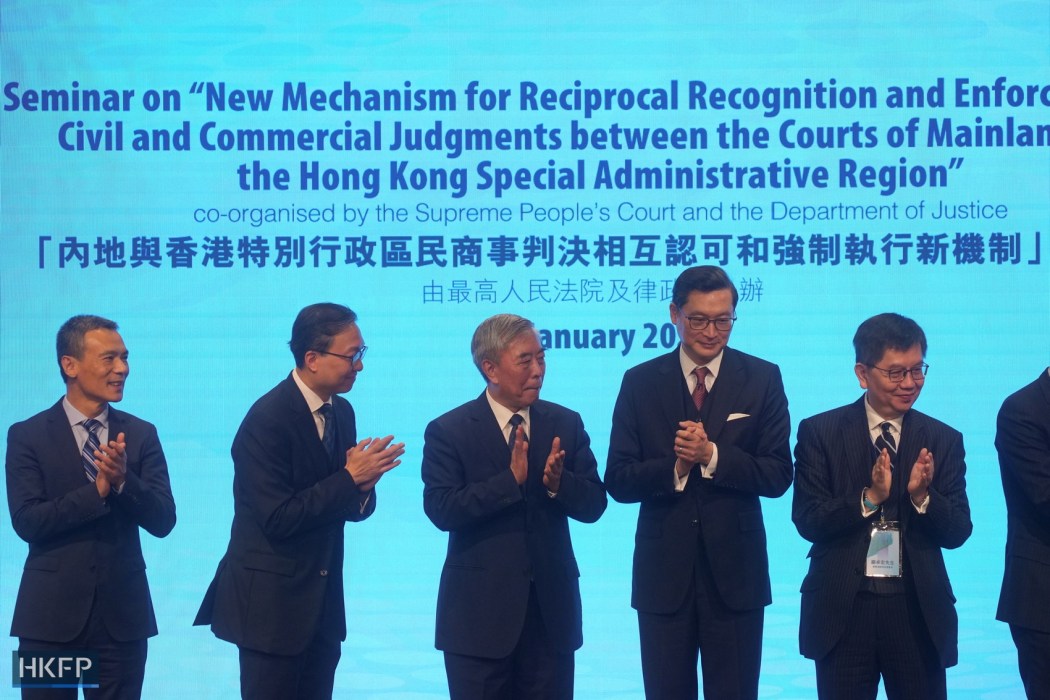
The Mainland Judgements in Civil and Commercial Matters (Reciprocal Enforcement) Ordinance specifies that, from Monday onwards, judgements stemming from criminal cases of a civil and commercial nature under mainland law are entitled to be registered in Hong Kong.
Once registered in Hong Kong, the judgements are immediately rendered enforceable in the city, as if they were handed down by the city’s High Court.
Secretary for Justice Paul Lam on Monday welcomed a high-level delegation led by Yang Wanming, vice-president of the Supreme People’s Court, at a legal seminar that addressed the legislation. Lam said the day marked a “milestone” for both the mainland and the city, claiming that the new law would consolidate Hong Kong’s position as an international dispute resolution centre.
“While it is essential to maintain a clear demarcation between the legal system of the Mainland and that of Hong Kong, it is necessary to construct linkages between the two systems so that the unique advantages offered by Hong Kong’s common law system may be fully utilised to serve the national interests of China as a whole,” Lam told an audience of around 200 people at the Hong Kong Convention and Exhibition Centre.
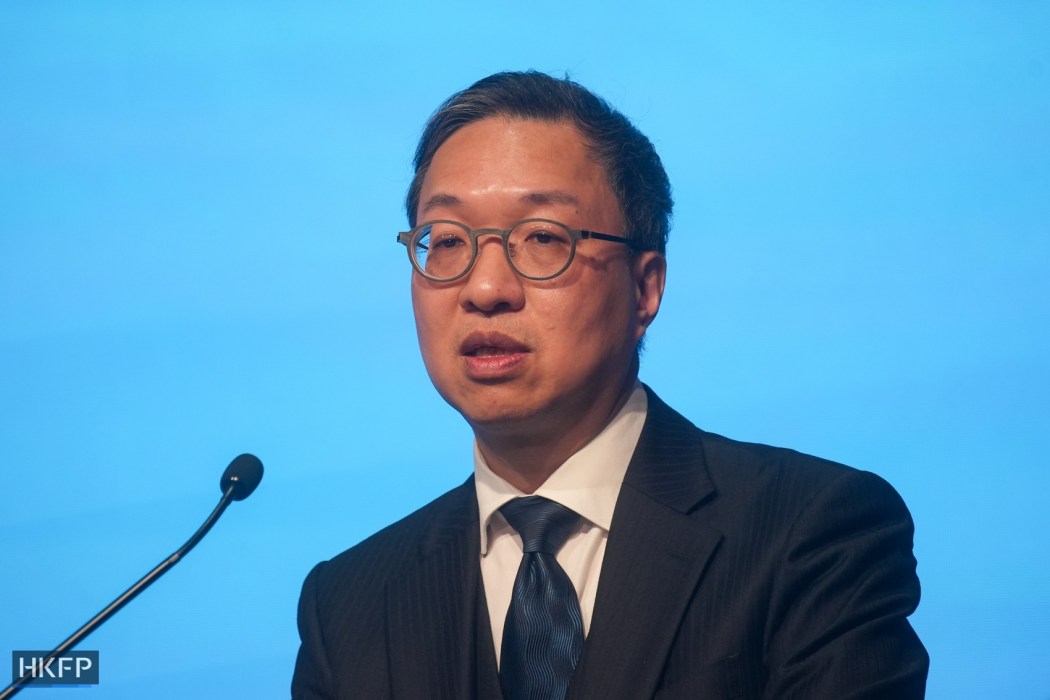
Lam highlighted the “wide scope” of judgements covered by the new legislation, including those resulting from contractual and civil disputes, as well as intellectual property infringements.
He drew a comparison with a similar arrangement – enacted by the Hague Convention – that was applied to close to 30 European countries in 2023, which did not include intellectual property judgements in its provisions.
The justice chief added that the “fundamental principles” behind the new legislation were consistent with the prevailing international practice as reflected by the European legislation enacted by the Hague Convention.
The legislation enacted on Monday first emerged as an arrangement signed between China’s Supreme People’s Court and the Hong Kong government five years ago. It was met with concerns over the mainland’s opaque legal system and its potential impact upon the city’s rule of law.
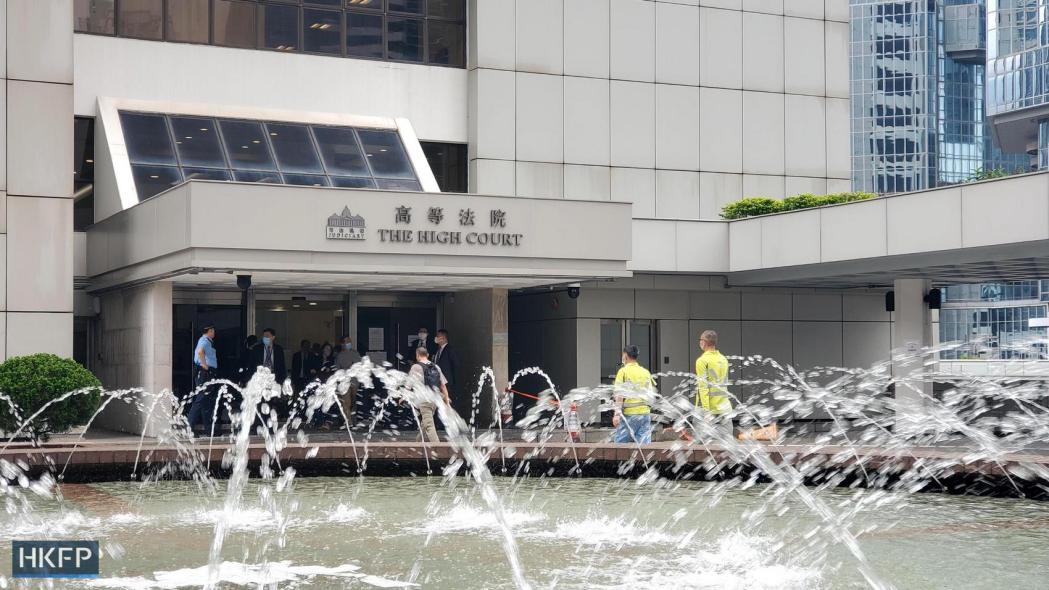
Investors have been concerned about the protection of their assets in Hong Kong and the impact of the ordinance on the city’s common law system, according to wealth managers who spoke with Nikkei Asia in December.
But Lam on Monday said there was a need to strike a balance between reciprocal enforcement and the protection of rights, saying that “only judgments obtained properly and fairly will be recognised and enforced [in Hong Kong].”
Enforcement concerns
At the same event, Jeremy Poon, chief judge of the High Court of Hong Kong, said that the new legislation “does not mean judgement[s] will be automatically recognised or enforced mutually.”
“For there are procedural steps governing the application for recognition and enforcement, and also refusal of recognition and enforcement of a judgement, which must be strictly and fully followed,” the judge said, referring to the registration procedures set out in the ordinance.
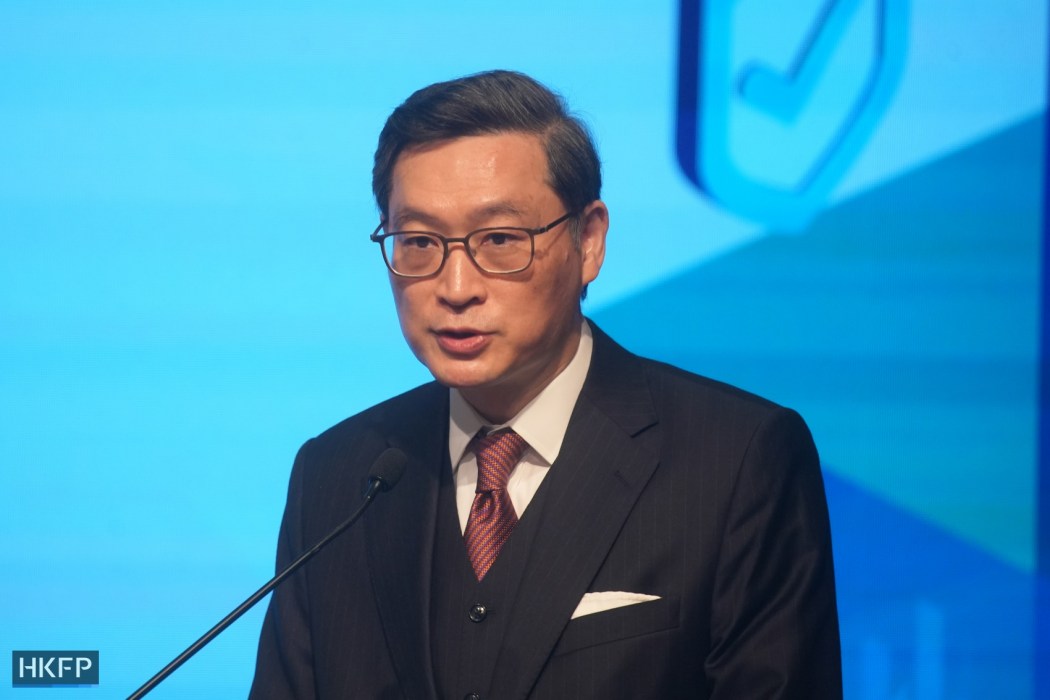
The new legislation further stipulates that registrable mainland judgements are recognised in Hong Kong as “conclusive” in relation to the same parties in the dispute, meaning that the same legal action taken out in the mainland could not be further brought against the same party in the city.
The same recognition and enforcement arrangement of Hong Kong’s judgements in the mainland also came into effect on Monday, following a judicial interpretation issued by the Supreme People’s Court last Thursday.
The cross-border legal deal followed previous arrangements on mutual legal assistance that covered areas such as marriage, family and bankruptcy.
Speaking in Putonghua at Monday’s seminar, Yang said the new legislation – and the advantages of Hong Kong’s common law system – would serve the purposes of “strong state-building” and “national rejuvenation” for China.
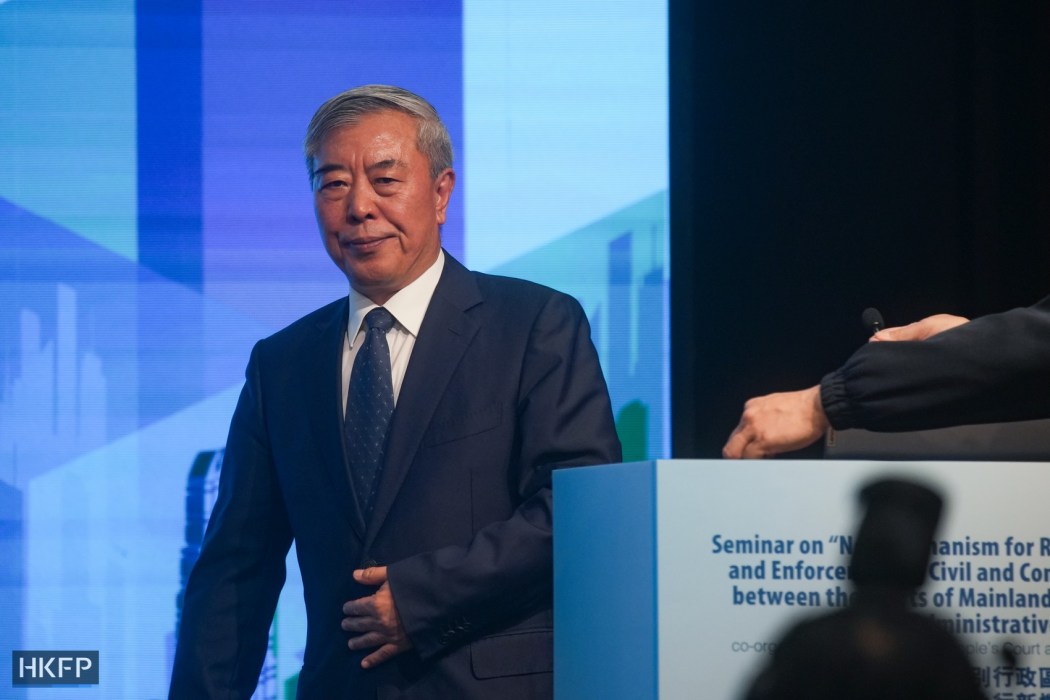
The Department of Justice said last week in a statement that there were “fallacies” in public discussion about the new ordinance, refuting claims that courts on both sides would exchange information on the details or enforcement of the cases.
When asked by HKFP at a Tuesday press conference about how to reassure investors, Lee also said that judgments made by mainland Chinese courts would need to be registered before their enforcement in the city, calling it “a fair process.”
Support HKFP | Policies & Ethics | Error/typo? | Contact Us | Newsletter | Transparency & Annual Report | Apps
Help safeguard press freedom & keep HKFP free for all readers by supporting our team

LATEST FROM HKFP
HKFP has an impartial stance, transparent funding, and balanced coverage guided by an Ethics Code and Corrections Policy.
Support press freedom & help us surpass 1,000 monthly Patrons: 100% independent, governed by an ethics code & not-for-profit.





